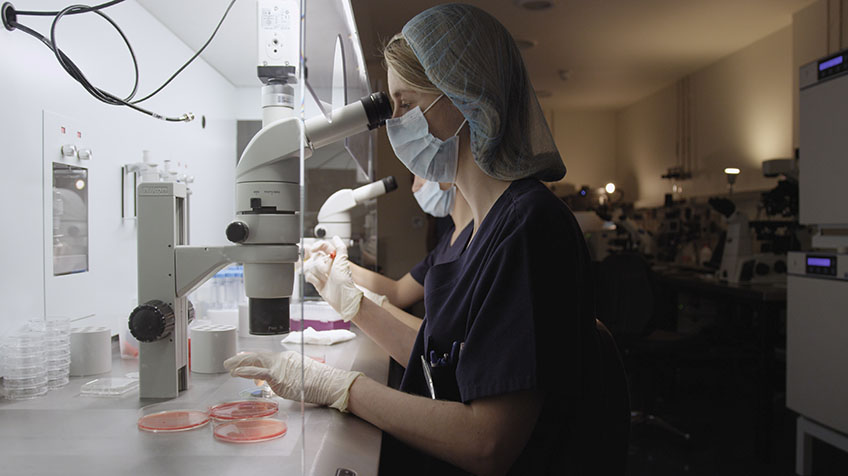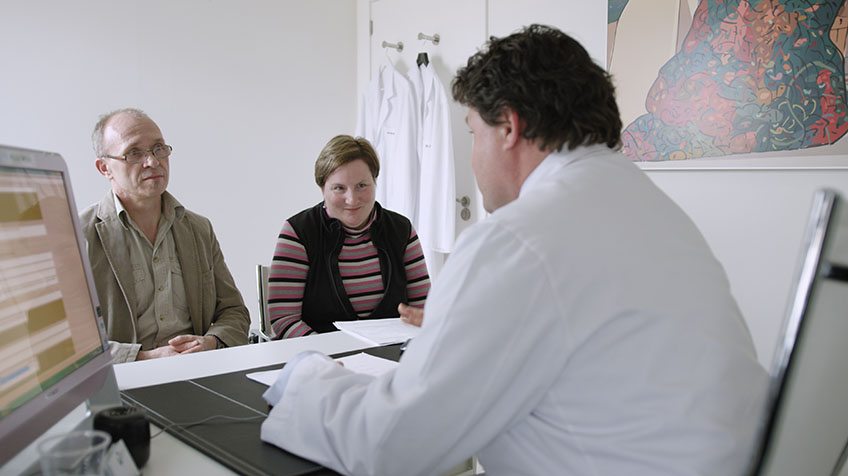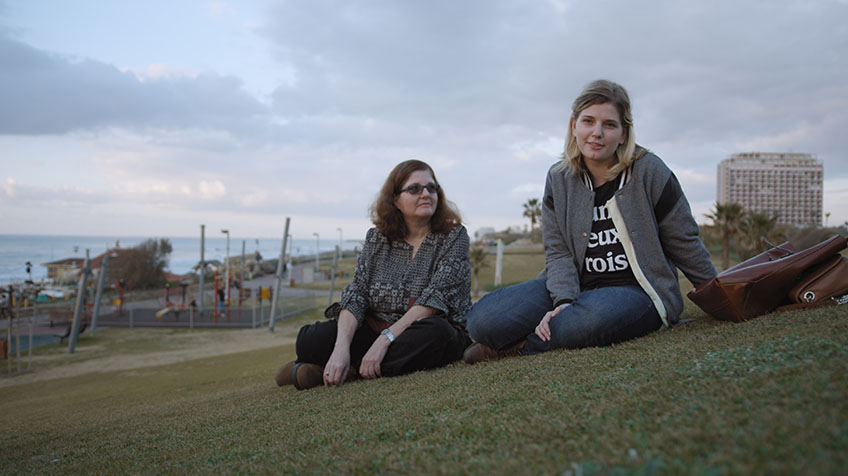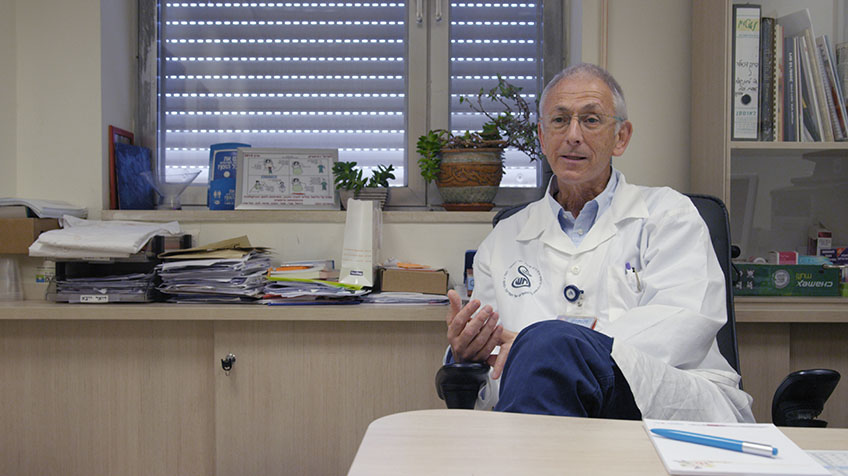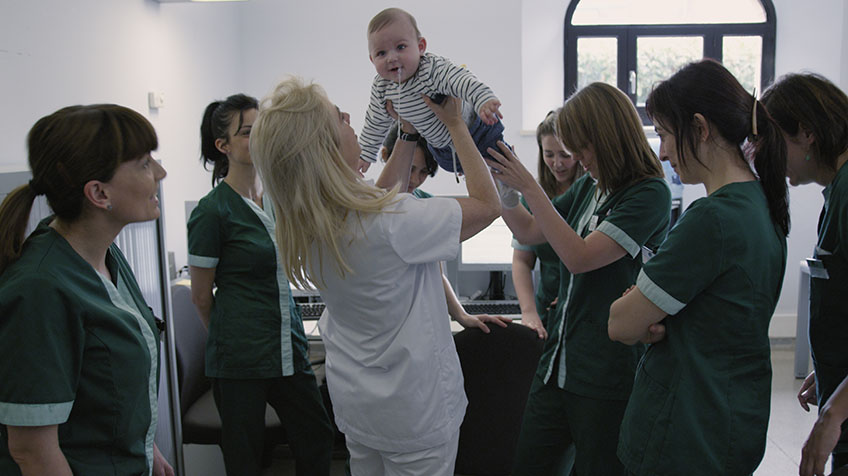Future Baby
 트레일러 재생
트레일러 재생
Maria Arlamavsky
- Austria
- 2016
- 91min
- DCP
- color
Korean Premiere
Synopsis
Future Baby is a film about the future of human reproduction as it is happening right before our eyes. Maria Arlamovsky’s exploration takes her all around the world—to patients and researchers, to egg donors and surrogate mothers, to laboratories and clinics. The hopes and wishes of future parents mesh with research on how to "upgrade" human embryos in the face of an ever-accelerating rate of progress. How far do we want to go?
Review
The future is just around the corner. In 1997 the SF film Gattaca features a futuristic society where people born of combination of dominant genes form the upper class and people born naturally form the lower class, and only 20 years later the science fiction is becoming a reality. The film-maker goes around hospitals and laboratories and listens to doctors, scientists, technicians, egg donors, surrogate mothers, and a woman born of in vitro fertilization. Couples who are well over childbearing age, couples with disorder genes, same sex couples, and couples who suffer from infertility all praise the benefit of artificial fertilization, but this revolutionary technology does not always bring happiness. There are problems regarding the clients insisting only on dominant genes, the role of the egg donors, the relation between the wealth and the superiority of genes, etc. The skeptics who bring up philosophical, ethical, legal questions regarding this brilliant scientific achievement make us ponder upon how far human beings can interfere with the nature. This documentary film is at once very informative and enlightening. [Jeong Min-ah]
Director
-
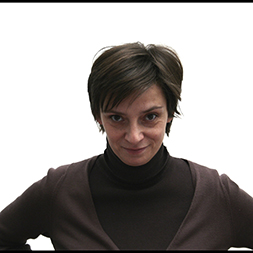
Maria Arlamavsky
Looking for QI (2011)A White Substance (2008)Loud and Clear (2002)Rubber Chicken (1998) Children are an important part of my life, a part that despite the effort I would not want to miss. I understand why people want to have and raise children and want to live as a family, be it in a straight or gay relationship or as a single parent. Adopting a child who comes with a lot of unknowns or taking in a foster child, having to deal with officials and justifying why you want to have a child, proving that you have sufficient resources, etc., appears difficult to many and is not yet an option for all. Injecting hormones to produce more eggs, ejaculating into a jar, and hoping that the considerable financial effort will pay off seems, in a way, more predictable. It is estimated that since 1978, 5 million children have been born who were not conceived through parental sex but through science, pharmaceuticals, and medical technology—children who (most of the time) are happy to be alive and don't want to be viewed as test-tube babies or guinea pigs. They are planned children of parents who very much wanted ‘their’ child. But in 2013, for example, the actual live birth rate for IVF in Austria was only 26 percent. Today there are statistics that say one shouldn't give up before the sixth IVF attempt. That makes for lucrative business. Similar to cosmetic surgery, reproductive medicine capitalizes on the desire to get what we don't have—something we don't absolutely need but desperately hope to attain. The hopes and wishes of prospective parents, the promises of clinics, hospitals, and physicians, and the visions of scientists working in the field, as well as how these different aspects interact, have fascinated me throughout my work on Future Baby. Everyone seems to be trudging along on their own track while losing sight of the bigger picture, too close to see the trajectory of a development that does lead to children but has other social, psychological, and ethical consequences as well that are often overlooked. Future Baby does not provide any answers, but it does try to bring together images that are usually kept apart. Young egg donors who offer their eggs willingly and gladly because of monetary compensation, surrogate mothers who hope to provide a better future for their own children by carrying a genetically unrelated embryo for someone else, and people who were themselves conceived with the genetic material of someone they don't know meet those who would prefer not to think about all of this on their quest for a child of their own. With Future Baby, I wanted to explore where the rapidly developing fields of reproductive medicine, genetics, and birth control are taking us, and I believe we have come to a point where it is imperative that we ask ourselves, “How far do we want to go?”
Credit
- ProducerMichael Kitzberger, Nikolaus Geyrhalter, Markus Glaser, Wolfgang Widerhofer
- Cinematography Sebastian Arlamovsky
- Editor Natalie Schwager, Alana Newman
- Music Vicent Pongracz
Contribution / World Sales
Contribution / World Sales Austrian Films
Phone 43 1 526 33 23
E-mail anne.laurent@afc.at
Website http://www.AustrianFilms.com
